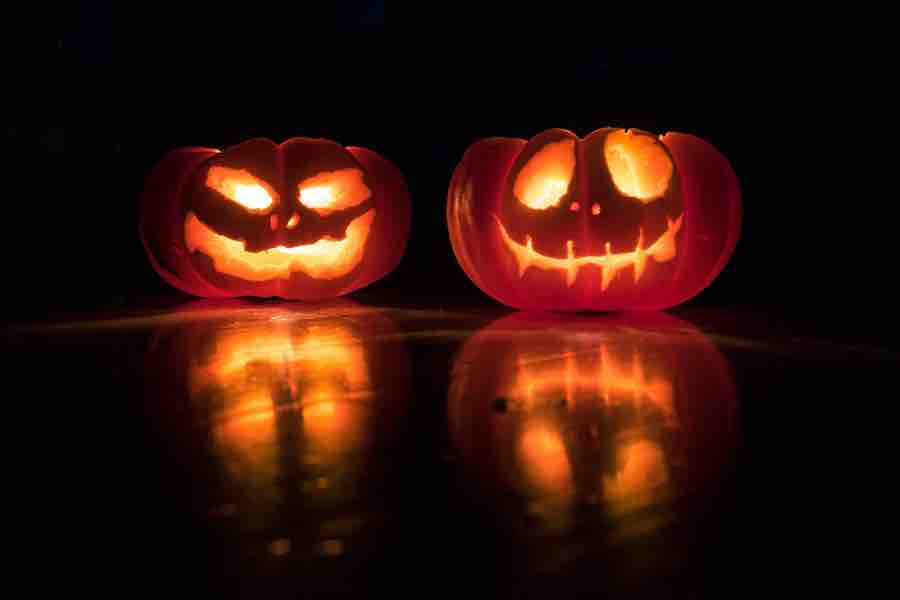

The Real Reason We Love Halloween
I must admit that I’ve never been much of a Halloween kind of guy. Even as a kid, I was really just in it for the candy. Then as I moved into high school and trick-or-treating became socially frowned upon both by my peers and the adults who would give me a scrutinous or reproachful gaze as they saw my sorry excuse for a costume and the far-too-old kid who was wearing it, I graduated to mostly just spending the evening engaging in far more sophomoric acts of vandalism like tp’ing my neighbour’s oak tree. Even now as an adult, I really only experience Halloween vicariously through my kids, enjoying their exuberance for getting dressed up in some costume of their own derivation and traipsing around our neighbourhood begging fro candy like some sort of sugar-addicted hobos. To be honest, what keeps me going on these Bataan Death Marches are the stops along the way for adult libations that have become a regular tradition due a couple of truly innovative peeps in my local hood. I’ve been wearing the same 70’s era Winnie the Pooh costume that my parents sent after cleaning out the attic for fifteen straight years now. My kids love it for the nostalgia value. I just dig it because it seems to inspire people to spontaneously come up to me and rub my belly without even stopping to ask permission. And if there’s one thing Pooh Bear likes, it’s some honey.
But just because Halloween isn’t my favourite holiday, doesn’t mean that it doesn’t top the list for a whole bunch of other folks. As someone who recoils in fear at the thought of anything even slightly creepy or scary, I spend much of the month with my television remote well within immediate reach lest I be caught off guard and subjected to one of the ubiquitous commercials advertising yet another Halloween-themed slasher flick. But those commercials exist because other people eat that stuff up. They love being scared. They love the spine-tingling creepiness that overcomes the senses when that little girl’s head spins around and she starts spewing vomit and speaking in a voice with more bass and gravel than the Marlboro man after a heavy night of drinking. They spend their hard-earned money to go to Haunted Houses with a kind of verisimilitude of blood and guts that would make someone like me pee myself. These folks embrace their inner dark side. Some of them even worship it. But despite all that, horror is not what makes Halloween so popular with most people.
No, what makes Halloween such a beloved occasion in our modern zeitgeist is that it remains one of the last cultural opportunities for dressing up as someone, or something, else. By wearing a costume, we take on another identity for one spectacular evening, thus leaving behind, if only temporarily, the inherent baggage of being ourselves. In some sense it represents a beleaguered weariness with the travails of our own daily existences. Dressing up in costume provides a possibility for escapism, an opportunity to leave ourselves behind that we are only too eager to seize upon.
Years ago, I was invited to speak at the Denver Comic Con on the subject of recurrent tropes in fantasy fiction. I remember being taken back by the intricacy and commitment of many of the costumes people wore there. As I stared hopelessly at the young woman dressed in an eerily uncanny resemblance to Gamora from the Guardians of the Galaxy series, I wondered if she really thought she was Gamora. She had clearly spent quite some time putting the whole outfit together. Did she sit in front of her mirror putting on green makeup recounting the atrocities wreaked upon her by an unloving father hellbent on wiping out half the lifeforms of the galaxy? Or did she know that she still had to pick her kids up from school no later than 3 o’clock? While that reality would kick in for her at 2:45, everything up until then allowed her to leave that truth behind for a little while.
Some Halloween costumes are downright frightening. Others are just plain hilarious. But all of them represent some form of escapism or another. Take, for example, the other common motif in adult Halloween costumes: the slutty girl syndrome. Be it Naughty Nurse or Sexy Kitten or that costume where you can’t tell what the hell she is actually supposed to be, but you swear it you saw the same outfit on a Colfax call girl years before, the result is still the same: Halloween serves as an opportunity for them to become a vision of themselves that they keep hidden away the other 364 days of the year. I have seen friends who generally have a penchant for strait-laced attire use Halloween as an excuse for rocking that lingerie like a Motley Crue groupie. That’s because for one solitary evening a year, they get to step out of the pre-ordained boundaries of their mundane daily lives and escape to a realm where those puritanical restrictions no longer apply. For one night a year, they get to live the life they truly imagine.

All of this should probably be telling us something about the nature of the lives we inhabit the other 364 days a year. Somewhere in there lies a sense of dissatisfaction with who we are and how we live. Somehow the fantasy we enact is more enticing than the reality we live. Perhaps if we could tap into the allure that draws us to that alter-reality, we could bring a little more of that into our daily existences. Then we might be a little more eager to dwell in the skin we are already given.
But I’m keeping that Pooh costume. That’s because I’ve got a rumbly in my tumbly.



